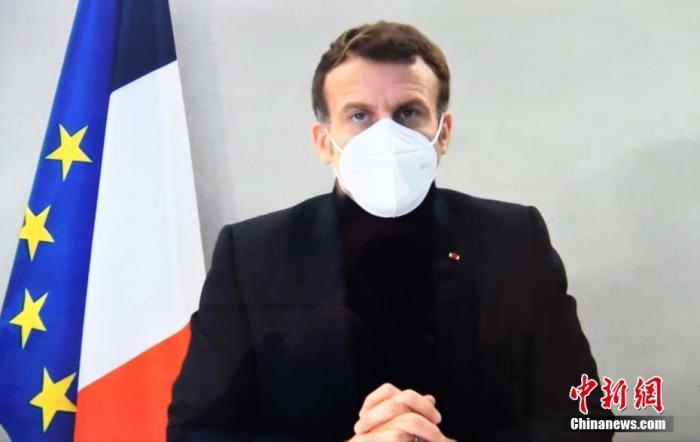Chinanews.com, June 11th. Starting on the 9th, US President Biden will visit Europe for the first time as president. He will attend the G7 summit and NATO summit successively. He will also fly to Geneva to meet Russian President Putin.
Foreign media said that the China issue will become one of the main contents of various negotiations during Biden's visit to Europe.
However, the analysis pointed out that the United States' "decoupling policy" against China will always encounter a lot of resistance in Europe and may encounter difficulties.
Data map: US President Biden.
[U.S. China policy is blocked in Europe? 】
The German "Business Daily" recently published an article titled "Biden's European Trip Is to Fulfill China's Mission", which wrote: "For the United States, China, which has developed into a high-tech country, is the United States' main opponent. Therefore, the purpose of Biden's European trip is to urge European allies to implement a common European and American "strategy toward China."
However, the article pointed out that the United States’ “decoupling” policy against China will always encounter a lot of resistance in Europe: on the one hand, the EU powers led by Germany are extremely dependent on the Chinese market; on the other hand, they have 27 It is difficult for the member states of the European Union to "voice a common voice" in terms of its China policy.
The New York Times analyzed that Europeans do not regard China as a "peer competitor" like Washington. In terms of trade and energy, Europe's dependence on China and Russia is still higher than that of the United States.
Ichinger, chairman of the Munich Security Conference, believes that the fact that Europeans lack the so-called "Chinese strategy" makes Washington "increasingly frustrated."
Yuri Lubinski, director of the French Studies Center of the European Institute of the Russian Academy of Sciences, also pointed out in an interview with the Russian Satellite News Agency that the US President's attempt to mobilize European support against China's growing "threat" may encounter difficulties.
"The two sides will find a basis for consensus. Europeans will intend to maintain certain benefits of trade with China. Moreover, in general, they are not involved in confrontation with China in the Asia-Pacific region." He said: "Know that Europeans Sticking to its own strategic interests. The essence is to build an equal, pragmatic and active economic relationship with China."
Recently, the results of public opinion surveys jointly released by two think tanks in the United States and Europe have also "poured cold water" on Biden.
The survey showed that since Biden took office, "the German and French views on the international influence of the United States have not changed."
The German weekly "Focus" pointed out that "the United States and Europe can no longer return to the past."
Data map: French President Macron.
Photo by China News Agency reporter Li Yang
[European leaders have expressed their views]
In fact, European leaders have made a clear statement.
Reuters reported in a June 11 report that French President Macron stated, "Our policy in the Indo-Pacific strategy is not to align with anyone. On this issue, I am advocating for France and Europe. The policy is: Don’t become a vassal of China, and don’t form an alliance with the United States."
Foreign media previously analyzed that Macron has publicly criticized "NATO brain death" several times, and hopes that Europe will take a path of diplomatic autonomy, and does not want the United States to take the lead.
In addition, on the eve of the summit with Biden, one of the two main leaders of the European Union, Michelle, President of the European Council, "defended" the EU's efforts to reach a China-EU investment agreement with China.
Michel said that he personally firmly believes that the China-EU Investment Agreement is "a big step in the right direction."
Michelle said, "We want to rebalance our economic relationship with China. In the past few years, we have decided to facilitate (China) access to our single market."
On June 10th, local time, US President Biden, who was visiting Europe, met with British Prime Minister Johnson.
[Biden's European trip still has directional significance]
Zhang Xin, an associate professor of the Institute of International Relations and Regional Development of East China Normal University, analyzed in an interview with the Russian Satellite News Agency, “What new consensus will the US and Europe reach with Biden’s trip to Europe, and may also affect the next step of China and the US The situation of cooperation in these areas."
"There is no doubt that Biden's visit to Europe hopes to further clarify his position with European leaders at some levels, including with some of the more important European countries, to reach a common political strategy and basic concept of values."
Its further analysis stated, “However, in terms of specific policy areas, such as the security situation in Europe and Eurasia, and the impact on the global economy, to what extent can the United States and Europe reach a consensus? How will it be reflected in the operational level? How much direct resources and support the United States is willing to provide for these policy areas? These may all be important topics of Biden's European trip."
Zhang Xin said that these important issues and the final results of the policy field may affect the basic trend of the development of Sino-US relations in the future, and they deserve careful attention.

